How might diabetes lead to Alzheimer’s? Study suggests liver is key
New research conducted in mice offers insights into what’s going on at the molecular level that could cause people with diabetes to develop Alzheimer’s disease.
The study adds to a growing body of research on the links between Type 2 diabetes and Alzheimer’s disease, which some scientists have called “Type 3 diabetes.” The findings suggest that it should be possible to reduce the risk of Alzheimer’s by keeping diabetes well controlled or avoiding it in the first place, according to researchers.

Narendra Kumar, an associate professor at Texas A&M University in College Station, led the study.
“We think that diabetes and Alzheimer’s disease are strongly linked,” Kumar said, “and by taking preventative or amelioration measures for diabetes, we can prevent or at least significantly slow down the progression of the symptoms of dementia in Alzheimer’s disease.”
Kumar will present the new research at Discover BMB, the annual meeting of the American Society for Biochemistry and Molecular Biology, which is being held March 23–26 in San Antonio.
Diabetes and Alzheimer’s are two of the fastest-growing health concerns worldwide. Diabetes alters the body’s ability to turn food into energy and affects an estimated 1 in 10 U.S. adults. Alzheimer’s, a form of dementia that causes progressive decline in memory and thinking skills, is among the top 10 leading causes of death in the United States.
Diet is known to influence the development of diabetes as well as the severity of its health impacts. To find out how diet could influence the development of Alzheimer’s in people with diabetes, the researchers traced how a particular protein in the gut influences the brain.
They found that a high-fat diet suppresses the expression of the protein, called Jak3, and that mice without this protein experienced a cascade of inflammation starting with the intestine, moving through the liver and on to the brain. Ultimately, the mice showed signs of Alzheimer’s-like symptoms in the brain, including an overexpressed mouse beta-amyloid and hyperphosphorylated tau, as well as evidence of cognitive impairment.
“Liver being the metabolizer for everything we eat, we think that the path from gut to the brain goes through liver,” Kumar said.
His lab has been studying functions of Jak3 for a long time, he added, and they now know that the impact of food on the changes in the expression of Jak3 leads to leaky gut. This in turn results in low-grade chronic inflammation, diabetes, decreased ability of the brain to clear its toxic substances and dementia-like symptoms seen in Alzheimer’s disease.
The good news, according to Kumar, is that it may be possible to stop this inflammatory pathway by eating a healthy diet and getting blood sugar under control as early as possible. In particular, people with prediabetes — which includes an estimated 98 million U.S. adults — could benefit from adopting lifestyle changes to reverse prediabetes, prevent the progression to Type 2 diabetes and potentially reduce the risk of Alzheimer’s.
Narendra Kumar will present this research at the interest group session on inter-organ communication in cellular and immune homeostasis from 12:30 to 2:30 p.m. on Saturday, March 23, in Room 214BC and from 4:30–6:30 p.m. on Tuesday, March 26, in the exhibit hall of the Henry B. González Convention Center (Poster Board No. 315) (abstract).
Enjoy reading ASBMB Today?
Become a member to receive the print edition four times a year and the digital edition monthly.
Learn moreGet the latest from ASBMB Today
Enter your email address, and we’ll send you a weekly email with recent articles, interviews and more.
Latest in Science
Science highlights or most popular articles
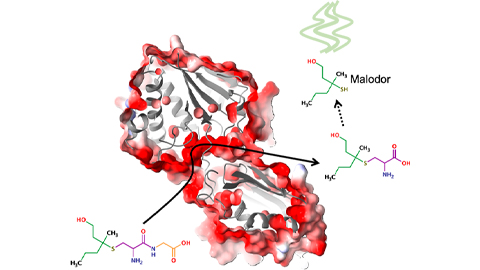
Bacterial enzyme catalyzes body odor compound formation
Researchers identify a skin-resident Staphylococcus hominis dipeptidase involved in creating sulfur-containing secretions. Read more about this recent Journal of Biological Chemistry paper.
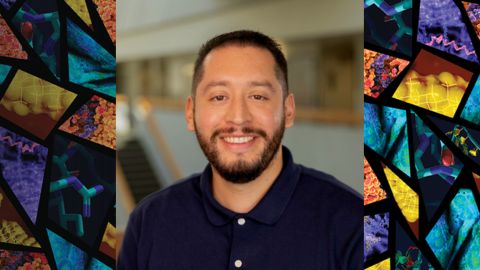
Neurobiology of stress and substance use
MOSAIC scholar and proud Latino, Bryan Cruz of Scripps Research Institute studies the neurochemical origins of PTSD-related alcohol use using a multidisciplinary approach.
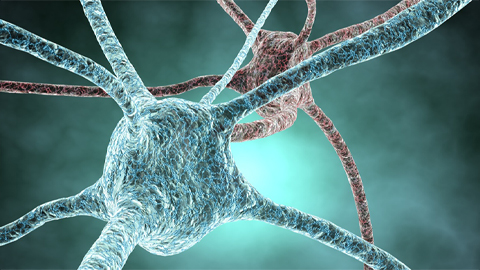
Pesticide disrupts neuronal potentiation
New research reveals how deltamethrin may disrupt brain development by altering the protein cargo of brain-derived extracellular vesicles. Read more about this recent Molecular & Cellular Proteomics article.

A look into the rice glycoproteome
Researchers mapped posttranslational modifications in Oryza sativa, revealing hundreds of alterations tied to key plant processes. Read more about this recent Molecular & Cellular Proteomics paper.
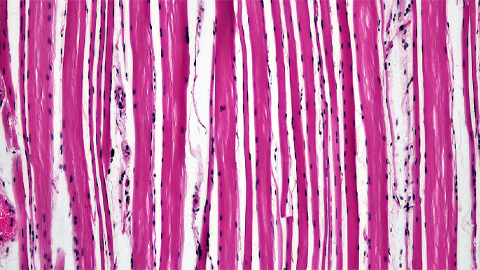
Proteomic variation in heart tissues
By tracking protein changes in stem cell–derived heart cells, researchers from Cedars-Sinai uncovered surprising diversity — including a potential new cell type — that could reshape how we study and treat heart disease.
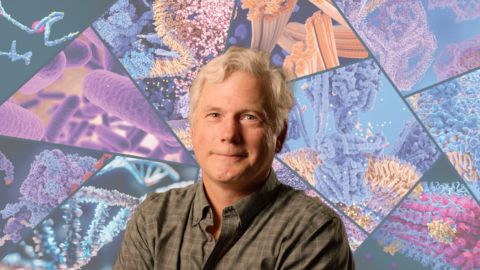
Parsing plant pigment pathways
Erich Grotewold of Michigan State University, an ASBMB Breakthroughs speaker, discusses his work on the genetic regulation of flavonoid biosynthesis.

